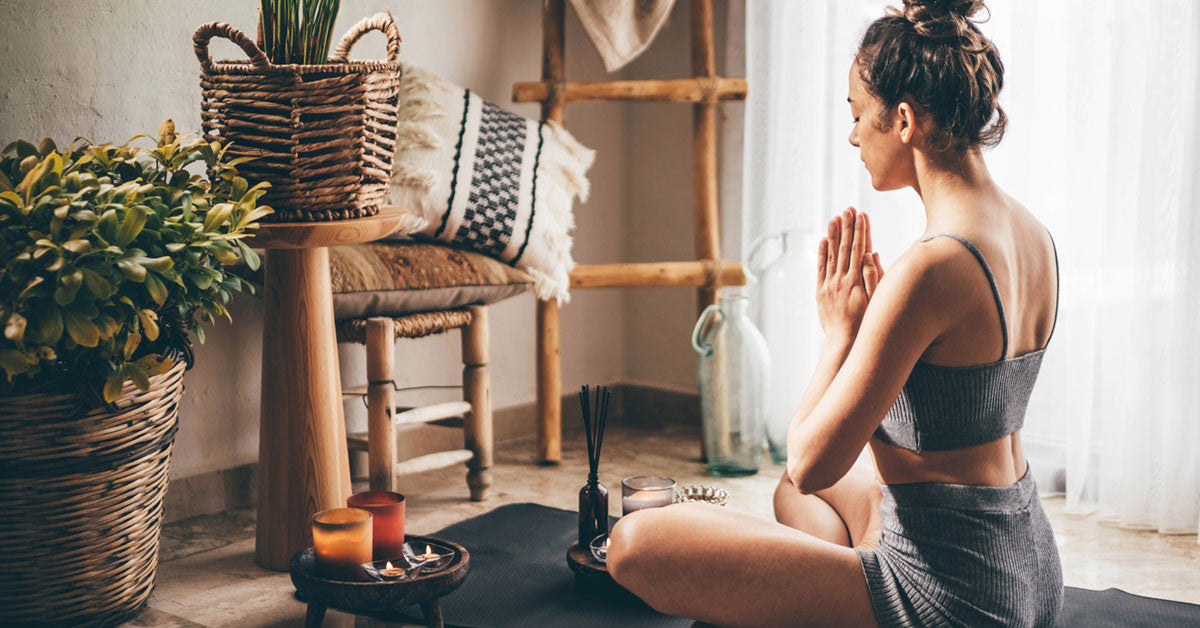Meditation is one of those things that we often hear about but may overlook as a possible therapy in our own lives. While it might seem like someone’s just sitting down with their eyes closed, you’ll quickly start to realize the potential it has once you try it for yourself. This brings us to guided meditation for anxiety, a strategy that’s helpful if you feel anxious, stressed out, and nervous. In this article, we’ll be exploring guided meditation and how it can help you cope better with anxiety, enhance concentration, and improve the way you manage stress.
What is Guided Meditation?
We’ll be talking about guided meditation for anxiety - but what is it? Maybe you’ve heard of meditation before, but is this the same? That’s what we’re going to look at before we consider how it can help your anxiety.
When we talk about guided meditation, we’re referring to a practice that involves having a guide, making it a great choice for beginners. If you have a mind that’s constantly filled with thoughts, it’s really hard to slow down and focus on the present. Regular meditation can prove to be difficult in these situations, which is where the guided form of this practice comes into the picture.
There are different types of guided meditation and while some involve having a person in the room who’ll act as your guide, you can also use recordings. Alternatively, you can even do something as simple as focusing on your breathing and letting this become your guide as you attempt to meditate.
How Can Guided Meditation Help Reduce Anxiety?
There are a few ways in which guided relaxation meditation for anxiety helps; understanding the process and what happens during your sessions should give you a better idea.
When you meditate, you are bringing your attention to the current situation - or the present, as we call it. Anxiety often involves thoughts flowing through your mind rapidly and feeling like they’re taking over; your heart starts to beat faster, and you might even find it difficult to breathe.
When you bring your mind to the present, you allow yourself to stop overthinking[1]. It also produces a calm state of mind and helps you relax, which both contribute to reducing anxiety.
These effects can be enhanced with natural supplements containing extracts known for their calming benefits; for example, you might consider using Nuu3 Keep Calm Gummies in conjunction with meditation to help you relax even further.
15-minute Guided Meditation Steps for Anxiety
When you decide to give guided meditation for anxiety a try, you might not be completely sure how to start. We’re going to share a 15-minute program that offers a basic form of guided meditation and will provide a foundation that you can then build on. This section will look at the program step-by-step.
-
Find a comfortable spot: Start by deciding where you’re going to meditate. It should ideally be a location without distractions.
-
Sit upright and comfortably: Wherever you choose to sit, make sure you feel no discomfort and always be aware of maintaining good posture.
-
Gently close your eyes: Take a look at the environment around you and slowly start to close your eyes.
-
Take a few deep breaths: Deep breaths are important when doing guided meditation for anxiety. Take a couple of deep breaths and become aware of how you are breathing.
-
Body scan: Do a body scan, becoming aware of every part of your body. Start with your breathing and then move to other areas.
-
Thought awareness: It is now time to collect your thoughts. Don’t try to push thoughts out of your mind; instead, let them come, accept them, and then allow these thoughts to pass.
-
Breath focus: While you perform these steps, you should continue to focus on your breathing. Feel and realize every inhale and exhale.
-
Gently open your eyes: Finally, open your eyes slowly and bring yourself back to the moment.
Benefits of Anxiety Meditation
Now that we’ve taken a look at a 15-minute guided meditation for anxiety technique, let’s consider the benefits. While your main concern right now is to use guided meditation to reduce your anxiety symptoms, it also offers many other advantages.
-
Stress reduction: When you’re anxious, stress is often at the root of your feelings. Guided meditation can be an excellent strategy to help you experience less stress, as you let go of stressful thoughts and focus on the present. Calms the mind: Guided meditation for anxiety can also help to calm your mind. This means you can stop those overflowing thoughts and start to think more clearly as your mind begins to slow down.
-
Improved emotional regulation: You’re probably already aware of the effect anxiety has on your emotions. When you’re anxious, you may feel irritated or frustrated and your mood can quickly change. Guided meditation can help you control your emotions more effectively.
-
Enhanced focus and concentration: How well do you focus when you’ve got anxiety? Probably not as well as you want to. That’s another area where guided meditation for anxiety can be incredibly helpful.
-
Better sleep: If you’ve got anxiety, you already know the negative impact it can have on your sleep. It’s not just about sleep duration, but also quality[2]. Meditation can help you sleep better and to enhance the effects, you can even consider using a supplement like all-natural Nuu3 Sleep Support Gummies
-
Reduction in physical tension: Stress doesn’t only affect you mentally - as you continue to experience stress and anxiety, physical tension also builds up, which can make you feel stiff and sore in the neck, shoulders, and back. When you do guided meditation, you’ll likely notice a reduction in any tension you feel, wherever it occurs.
-
Increased self-awareness: Mindfulness plays an important role when it comes to meditation. Through mindfulness, you’re also going to practice becoming self-aware which will help you better understand your ‘inner-self’.
-
Lower blood pressure: High blood pressure, also called hypertension, is a common problem that people face and can cause serious damage to the blood vessels. Luckily, it’s also another area where meditation becomes helpful. When you practice meditation to get rid of anxiety, it may also help to lower your blood pressure. A research paper[3] in the International Journal of Hypertension explains that meditation is not only good for high blood pressure, but can also be a useful prevention tool.
-
Improved overall well-being: Combine all of these benefits, and you’re going to start feeling healthier. For an extra boost, especially when you’re getting started with meditation, consider taking Nuu3 Nature’s Superfuel - this nutrient-packed supplement will give you a headstart on better well-being.
Understanding 5-senses Anxiety Meditation
When you’re doing guided meditation for anxiety, it’s important to focus on the five senses. This can help to improve general awareness and make it easier to focus your mind on the present.
It starts with sight; observe your surroundings before you close your eyes, then focus on touch and hearing. Feel the texture of your skin as your hands touch each other and hear yourself breathing. The sense of smell is also important - are there any particular scents that you notice? Taste is another sense that you can use to be more mindful, by slowly chewing and fully tasting your food when you eat.
FAQ
What is the best meditation for anxiety?
There are different strategies that you can use. Guided meditation for anxiety is particularly popular and has helped a lot of people effectively cope with this issue.
How long should you meditate to reduce anxiety?
Keep your sessions between 15 and 20 minutes. That’s going to give you enough time to properly feel the effects of meditation and to reduce anxiety symptoms.
Is guided meditation healthy?
Yes, guided meditation has many health benefits. It’s going to help your mind calm down and improve conditions like anxiety, stress, and more. Plus, there are also other benefits, like better concentration.
What is the 3-3-3 rule for anxiety?
There are many ways to cope with anxiety and some believe that the 3-3-3 rule is especially beneficial. If you feel anxiety coming on, start to look around you. Try to find three objects, then identify three sounds in the area; finally, move your awareness to three different body parts.
Takeaway
There are many benefits you can expect from guided meditation for anxiety. While it’s ideal for reducing anxiety, if you meditate regularly, you’ll feel less stressed, sleep better, and find that you have a greater sense of overall well-being. Getting started can be a challenge for some people, but following the simple steps we shared will make the process easier and allow you to quickly become familiar with this highly effective practice.
References
1] ↑https://www.mayoclinic.org/tests-procedures/meditation/in-depth/meditation/art-20045858
2] ↑https://www.ncbi.nlm.nih.gov/pmc/articles/PMC6557693/
3] ↑https://www.ncbi.nlm.nih.gov/pmc/articles/PMC3303565/









